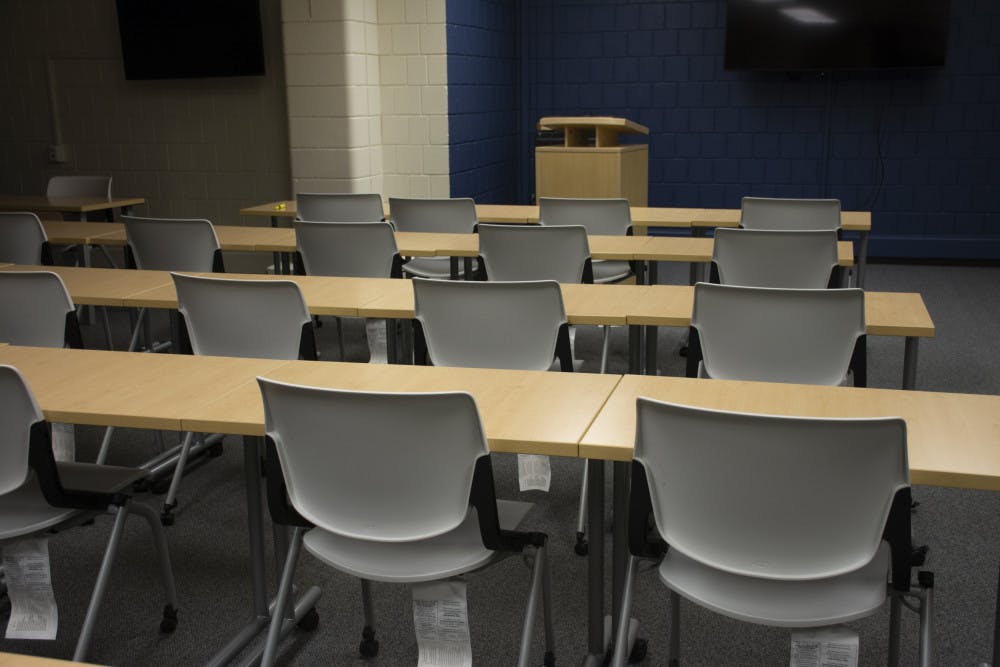The Israel-Hamas war may be happening thousands of miles away, but the personal effects are felt very deeply in the Seton Hall community.
Associate professor Huddleston is an adjunct professor in the School of Diplomacy at Seton Hall who specializes in international conflict, specifically in several areas of the Middle East.
The United States, especially New Jersey, has a large population of both Palestinians and Jews, Huddleston said. Both groups are represented in large numbers at Seton Hall, and because of this, leading classroom conversions about the conflict can be difficult, he said.
Huddleston said that this has been his most difficult experience leading discussions because it is one of the first times his students have been actively fearful and censoring themselves.
In order to effectively discuss the Israel-Hamas conflict, it is necessary to understand some historical context.
After Hamas carried out a terrorist attack in Israel on Oct. 7, the Israeli government “decided that the only acceptable outcome is the complete destruction of Hamas,” Huddleston said.
The larger conflict did not begin on Oct. 7, and people on both sides have decades’ worth of legitimate grievances with each other, Huddleston said.
The region’s history has created a situation that is “basically a recipe for deep, deep enmity,” Huddleston said.
When navigating or leading difficult discussions, Huddleston noted that in addition to having an understanding of the context, it is important to approach the topic with an open mind, practice active listening, and acknowledge the limits of one’s own knowledge.
To discuss this issue in his classes, Huddleston has some “soft ground rules.”
“My perspective is that you need to realize that in this conflict, everyone who says that they have a grievance that drives their support for one party or another, they do have those grievances,” Huddleston said.
It is important for his students to treat everyone involved in a class discussion on the conflict as if they have good intentions, he said. He tells his students that, if they find themselves offended by a statement, to stop and think about whether the statement could have been made genuinely innocently.
It is easy to unconsciously use a term that is not considered politically correct, especially when discussing a nuanced issue, according to Huddleston.
“For the most part, I just want people to actually try to listen to what someone is saying, rather than just sort of waiting to say what they want to say,” Huddleston said.
Active listening is an important skill in difficult conversations, he said. It is important to truly listen to what someone else is saying, rather than simply wait for your turn to speak again.
“Listening really needs to be emphasized in conversations like this, because everyone forgets to do it,” he said.
This same principle applies not just to his own students, but to professors who want to lead these discussions in their own classes.
Huddleston said that in order to lead a truly productive conversation, it is important to acknowledge the limitations of one’s own knowledge. It is most productive for professors to tailor conversations to be relevant to their own classes because it can be harmful for people to claim authority on a topic they don’t actually know much about.
“Having space for conversation is excellent, as long as everyone in that space embraces a logic of radical humility,” Huddleston said.
It is important, in these discussions, for everyone involved in these discussions to be aware of the limitations of their knowledge. This also applies to misinformation.
There is a plethora of misinformation and propaganda circulating about the conflict, which makes an already complex situation all the more difficult to navigate.
It is a natural instinct, Huddleston said, to reach for information that confirms preexisting beliefs. It is important to be aware of this instinct and actively avoid that inclination.
“The truer something feels like it should be, the more you should question it,” Huddleston said.
Propaganda is effective when it creates confusion about the truth, Huddleston said.
“Its function is to confuse people so much that they don’t have a choice but to believe what feels good,” he said.
In any discussion about the Israel-Hamas conflict, participants should be mindful of this, and avoid taking anything as fact until it can be confirmed as such.
It is not necessary for everyone to have a nuanced understanding of the conflict, said Huddleston.
He said that in learning about the conflict, it is best for people to follow “whatever natural level of interest they have” and that they should “entertain that and try to do it in a productive way.”
Huddleston also said that it is not necessarily productive to have conversations in classes to which the conflict is not relevant.
“My advice for professors is, be there for your students, not for a cause,” Huddleston said.
Because students on both sides of the conflict are present on campus, many students end up feeling lost as they navigate these conversations, Huddleston said. Regardless of which side of the conflict the students may fall on, it is important, he said, to support them.
“If their family is experiencing suffering,” he said, “I’m going to care about that.”
Catherine Anderson submitted this article from her Writing for the Media course. She can be found at catherine.anderson@student.shu.edu.





